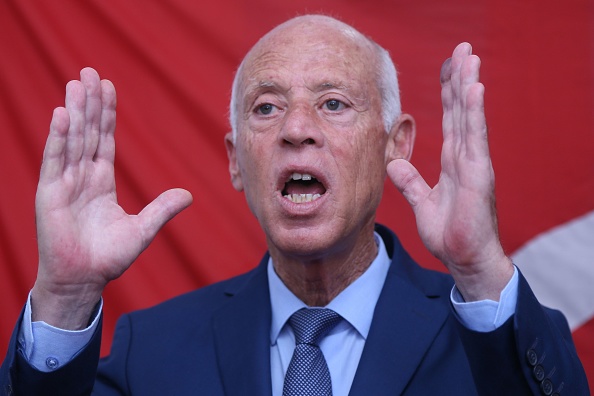Tunis – Human Rights Watch warned on Thursday that Tunisian authorities are using “repressive” dictatorship-era laws to snuff out criticism of President Kais Saied.
“Tunisian authorities are prosecuting citizens in both military and civilian courts and jailing them for public criticism of (Saied) and other officials,” it said.
“Using repressive laws enacted prior to the Tunisian revolution, prosecutors are going after those who criticise Saied.”
Saied on July 25 sacked the government, suspended parliament and lifted MPs’ immunity, later moving to rule by decree.
Tunisia was the birthplace of the Arab Spring revolts a decade ago, and Saied’s actions came after years of political turmoil and an economic slump exacerbated by the coronavirus pandemic.
ALSO READ | Exiled former Tunisia leader sentenced to 4 years, judicial source says
While some Tunisians welcomed his moves against a corrupt political system, others have called it a coup and warned of a return to authoritarianism.
Saied’s critics include exiled former president Moncef Marzouki, who was sentenced in absentia this week to four years in prison.
Tunisian media said Marzouki was found guilty of “undermining the security of the state from abroad” and of causing “diplomatic harm”.
A Tunisian judge had issued an arrest warrant against Marzouki in November, two weeks after Saied cancelled his diplomatic passport and ordered the judiciary to investigate him.
ALSO READ | Hundreds protests in Tunisia on anniversary of revolution
Several other political figures and activists have faced trial in military courts over public criticism of Saied.
On Thursday, a group of anti-Saied political figures announced a hunger strike against his “flagrant oppression and total abolition of freedoms”.
“It has become clear beyond any doubt that Kais Saied is determined to install his authoritarian regime under cover of populism,” they said in a statement on Facebook.
In response, “democratic forces opposed to the coup d’etat have no other choice than to start defending freedom with their own bodies”.
ALSO READ | Tunisia opposition condemns extension of parliament freeze
HRW’s Eric Goldstein said that “to publicly challenge the president and his seizure of special powers is to risk finding yourself in court”.
“Silencing critics is doubly dangerous at a time when the president is busy concentrating so much power in his own hands,” he added.
Earlier this month, the North African country’s journalists’ union warned of an “imminent danger to freedom of the press, media and expression” since July 25.
It criticised what it described as “a media lockdown and a flagrant violation of journalists’ right to access information”.
Follow African Insider on Facebook, Twitter and Instagram
Source: AFP
Picture: Getty Images
For more African news, visit Africaninsider.com


